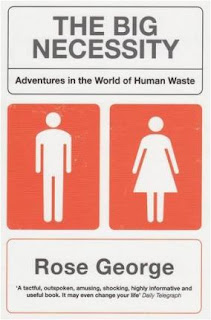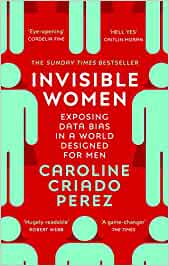The Big Necessity: Adventures in the World of Human Waste

For the category Popular Science of the 2022 NONFICTION READER CHALLENGE , I chose The Big Necessity: Adventures in the World of Human Waste, by Rose George, 2008. The book focuses on practices of sanitation (i.e., toilets) in the world (or lack of them) and why this impacts everyone on the planet, as well as the planet itself. This seems like an unusual topic (one of the reasons it interested me), but also one that’s important yet rarely talked about. George refers to this many times throughout the book (“… we refuse to notice that we still don’t know how to properly deal with something that we all produce, up to several times a day, many million years after we first started producing it.”). However, some of the data she presents indicates why this should change. Lack of sanitation – or poor sanitation – affects almost everything about our lives, even if we live in a society that has effective sanitation. She starts with the statistic that 2.6 billion people don’t have sanitat...
